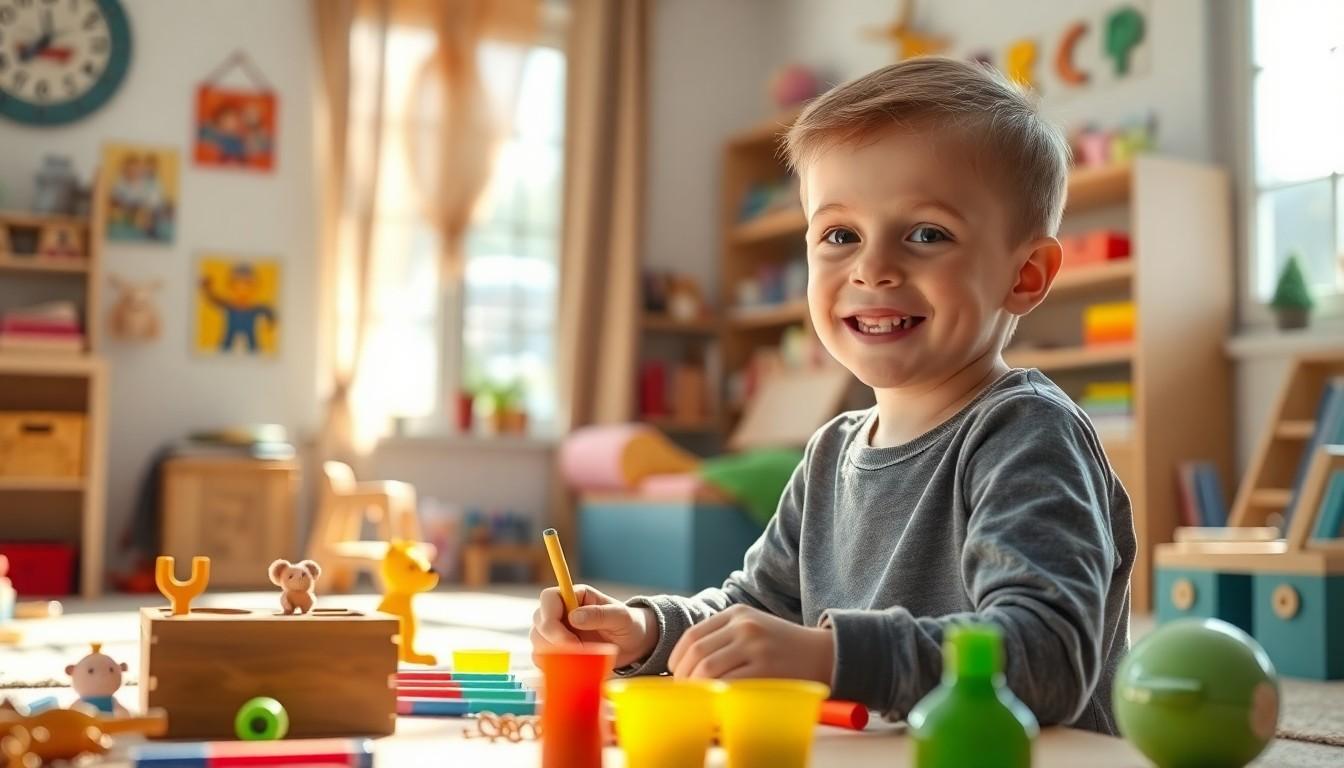Table of Contents
ToggleIn the colorful world of parenting styles, permissive parenting often takes center stage, and not always for the right reasons. Picture a parent who’s more of a friend than a guardian, showering their kids with love but sometimes forgetting the “no” part of the parenting handbook. This approach can lead to some amusing scenarios, like a child negotiating dessert before dinner or convincing their parent that bedtime is merely a suggestion.
But how does this style fit into the realm of AP Psychology? Understanding permissive parenting isn’t just about chuckling at the antics of overindulged kids. It’s a crucial concept that shapes child development and behavior. Dive into the nuances of this parenting style, and discover why it’s both celebrated and critiqued in the world of psychology.
Permissive Parenting Style Overview
Permissive parenting emphasizes a nurturing attitude while often lacking strict boundaries. This style fosters a close relationship between parent and child, focusing on love and affection.
Characteristics of Permissive Parenting
Permissive parents display several key characteristics. They typically allow children to make their own choices, often resulting in few rules. Consequently, these parents prioritize emotional support over discipline. Children in permissive households frequently experience more freedom in decision-making. They might enjoy greater autonomy regarding activities, such as homework or social engagements. Overall, this parenting style encourages open communication but may neglect essential structure.
Differences from Other Parenting Styles
Permissive parenting contrasts sharply with other styles, particularly authoritative and authoritarian approaches. Authoritative parents enforce rules while nurturing independence, leading to a more balanced environment. In contrast, authoritarian parents focus on strict obedience without emotional warmth. Permissive parenting lacks enforceable guidelines, which can contribute to behavioral issues later in life. Furthermore, children raised in permissive environments may struggle with self-regulation. These differentiations highlight the nuanced effects of permissive parenting on child development.
Impacts on Child Development
Permissive parenting shapes child development in various ways, leading to both positive and negative outcomes. Understanding these impacts is vital in examining the overall influence of this parenting style.
Positive Effects
Nurturing environments fostered by permissive parents promote self-esteem in children. Emotional support allows kids to express their feelings freely. Open communication encourages children to develop strong interpersonal skills. Children often feel validated, which strengthens their confidence. In situations where limits are flexible, children exhibit creativity and independence. They learn to make choices, which can enhance decision-making skills in adulthood. Supportive relationships with parents provide a sense of security, fostering resilience against life’s challenges.
Negative Effects
Lack of boundaries can lead to issues with self-discipline in children. Many struggle to adhere to rules in settings outside the home, such as school. Children often display behavioral problems due to the absence of enforceable guidelines. Inconsistent discipline may result in difficulties with authority figures later in life. Social skills can suffer as children sometimes rely too much on peer approval. Additionally, these children may face challenges in regulating their emotions, resulting in impulsive behaviors. Ultimately, permissive parenting can create obstacles to effective decision-making and self-control.
Research Studies on Permissive Parenting
Research studies on permissive parenting highlight its impact on child behavior and development. This section examines key findings and methodologies used in studies focused on this parenting style.
Key Findings
Studies indicate that permissive parenting often results in higher levels of self-esteem in children. These children tend to express emotions freely and exhibit strong interpersonal skills. However, they also show difficulties with self-discipline. Research consistently finds a correlation between permissive parenting and issues with authority figures. Children raised in permissive environments may struggle with impulsive behaviors, leading to challenges in decision-making. Long-term consequences include difficulties in maintaining structure and stability in various aspects of life.
Methodologies Used
Quantitative and qualitative methods dominate research on permissive parenting. Surveys involving parents and children gather valuable self-reported data, providing insights into parenting practices and child outcomes. Observational studies also play a crucial role, allowing researchers to analyze parent-child interactions directly. Longitudinal studies track development over time, revealing changes linked to parenting styles. Researchers use various scales to measure factors such as emotional regulation, behavioral issues, and self-esteem. This blend of methodologies enhances the understanding of permissive parenting’s multifaceted effects.
Applications in AP Psychology
Permissive parenting plays a crucial role in the AP Psychology curriculum. Understanding this style helps students analyze child development theories and behavioral outcomes.
Importance in Curriculum
Courses emphasize key characteristics of permissive parenting, such as emotional support and minimal discipline. Students learn about the balance between nurturing and boundaries. Discussions often focus on how this style contrasts with authoritative and authoritarian approaches, which provides a comprehensive view of parenting styles. Analyzing the consequences of permissive parenting, including both positive and negative implications, enhances students’ understanding of child psychology and development.
Examples in Exam Questions
Typical exam questions might include scenarios involving permissive parenting. Students might analyze case studies where a child exhibits self-regulation issues due to a lack of boundaries. Questions may ask for an evaluation of how permissive parenting could influence emotional development or behavior. Multiple-choice questions could present differing outcomes of permissive versus authoritarian parenting, prompting critical thinking. Such questions challenge students to apply theoretical knowledge to practical situations, reinforcing their grasp of the material.
Conclusion
Permissive parenting plays a crucial role in shaping a child’s development and behavior. Its emphasis on emotional support and open communication fosters strong relationships but often lacks the necessary boundaries for effective discipline. Understanding this parenting style is essential for anyone studying child development in AP Psychology. By recognizing the balance between nurturing and structure, individuals can better assess the long-term impacts on children’s self-regulation and decision-making skills. As the field of psychology continues to evolve, the implications of permissive parenting remain a vital area of exploration, influencing both academic discussions and practical applications in real-life scenarios.





